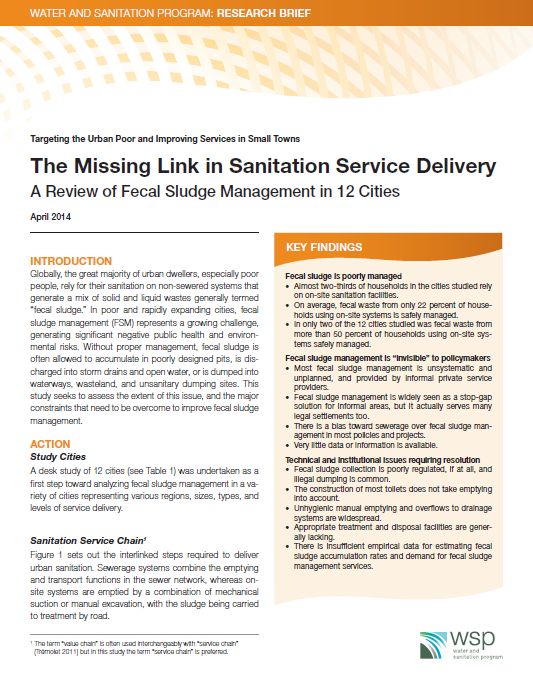
Author(s): Blackett, I., Hawkins, P., Heymans, C.
Published in: 2014
Pages: 0
Publisher: Water and Sanitation Programm (WSP), International Bank for Reconstruction and Development/The World Bank
The missing link in sanitation service delivery. A review of fecal sludge management in 12 Cities
Globally, the great majority of urban dwellers, especially poor people, rely for their sanitation on non-sewered systems that generate a mix of solid and liquid wastes generally termed fecal sludge. In poor and rapidly expanding cities, fecal sludge management represents a growing challenge, generating significant negative public health and environmental risks. Without proper management, fecal sludge is often allowed to accumulate in poorly designed pits, is discharged into storm drains and open water, or is dumped into waterways, wasteland, and unsanitary dumping sites. This research brief seeks to assess the extent of this issue, and the major constraints that need to be overcome to improve fecal sludge management. By compiling data from cities in the regions of Latin America, Africa, South Asia and East Asia and presenting them side by side the brief documents some relative key findings.
Keywords
Disease, environment, health, hygiene, sanitation, state of water resources, urban areas, wastewater


